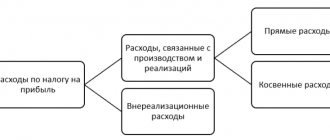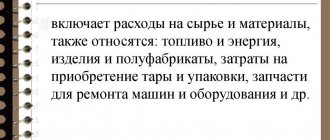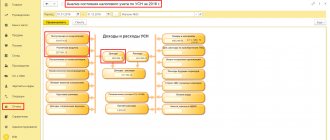Position of the tax authority
During the audit, the tax authority established that the invited consultant was awarded the qualification “electromechanical technician”. He did not undergo training in other specialties and was not awarded any other qualifications. The entrepreneur could not answer questions related to accounting, citing the lack of legal sources. The inspectorate issued a requirement to him to provide documents (information) confirming the right to conduct consultations in the field of accounting, tax and legal spheres (diplomas, certificates, etc.). Neither the taxpayer nor the entrepreneur submitted the requested documents.
The company's accountant clarified that consultations with the entrepreneur were carried out orally on the application of arbitration practice, changes in taxation and accounting legislation. Moreover, before using the information received in her work, she independently checked and assessed its relevance.
During the inspection, the inspectorate discovered that the founder of the company and the invited consultant are married, that is, they are interdependent persons.
From the information received, the tax authority concluded that the document flow was artificially created for the consulting services provided in order to obtain material benefits.
Income tax expenses: general rules
The general requirements for income tax expenses are known to everyone. According to paragraph 1 of Art. 252 of the Tax Code of the Russian Federation is:
- justification of expenses;
- their documentary evidence;
- as well as the connection with the activity from which income is expected to be generated.
At first glance, everything is simple and extremely clear, and most importantly, logical. These restrictions are designed to cut off all opportunities for abuse and attempts by management or owners to obtain any personal benefit at the expense of the company and, ultimately, the budget (in the form of tax savings).
At the same time, compliance with these requirements does not seem difficult at first. However, in practice, the issue of recognizing expenses for income tax is one of the key issues in the taxation of organizations. It gives rise to no less controversy than the procedure for VAT deductions. And controllers who guard the interests of the budget carefully examine every expense of the organization and, at the slightest suspicion, try to remove expenses from the base, which leads to additional tax assessment.
Therefore, you need to not only know these requirements, but also be able to apply them in accounting work.
This article will help you learn everything about the conditions for recognizing expenses for “profitable” purposes.
Read about some of the nuances of documenting expenses in the following articles:
- “When is a qualified electronic signature required?”;
- “Printing is not a mandatory attribute of the primary document”;
- “To confirm the costs of road transportation of goods, a waybill is required”;
- “It is impossible to confirm expenses with a facsimile document”;
- “Monthly act - how to confirm rental expenses?”
The court decided
Clause 1 of Article 252 of the Tax Code establishes the ability of a taxpayer, when calculating income tax, to reduce income received by the amount of expenses incurred.
Expenses are recognized as justified and documented expenses (losses) incurred (incurred) by the taxpayer.
Justified expenses mean economically justified expenses, the assessment of which is expressed in monetary form. Documented expenses mean expenses supported by documents drawn up in accordance with the legislation of the Russian Federation.
The Plenum of the Supreme Arbitration Court of the Russian Federation in paragraph 1 of Resolution No. 53 of October 12, 2006 “On the assessment by arbitration courts of the validity of the taxpayer receiving a tax benefit” explained that the submission by the taxpayer to the tax authority of all properly executed documents provided for by the legislation on taxes and fees, in for the purpose of obtaining a tax benefit is the basis for receiving it, unless the tax authority proves that the information contained in these documents is incomplete, unreliable and (or) contradictory. The same resolution in paragraph 4 states that a tax benefit cannot be considered justified if it is not related to real business or other economic activity.
As follows from the case materials, an agreement for information and reference services was concluded between the company and the individual entrepreneur, under which the contractor assumes the obligation to consult the company’s business, and the customer undertakes to pay for the services of the contractor in the manner, on time and under the conditions specified in the agreement.
The presence of an accountant on the staff of the organization does not exclude the possibility of attracting third-party specialists to provide additional services, however, in this case, as reasonably indicated by the tax authority, the entrepreneur, without special education, is not a specialist in the field of accounting and reporting. Taking into account all the circumstances of the case, the court came to the conclusion that the taxpayer unreasonably reduced income for expenses on consulting services provided by the individual entrepreneur.
The documents submitted by the company on business transactions with the entrepreneur do not confirm the expenses incurred related to economic activities. The company has created the appearance of formal compliance with legal requirements in order to obtain unjustified tax benefits.
Help your business grow
Invaluable experience in solving current problems, answers to complex questions, specially selected latest information in the press for accountants and managers. Choose from our catalog >>
Income tax expenses: list
Expenses accepted for profit tax purposes in 2021 can be divided into 2 main groups (clause 2 of Article 252 of the Tax Code of the Russian Federation):
- costs associated with production and sales. These are material expenses, labor costs, amounts of accrued depreciation, other expenses (clause 2 of Article 253 of the Tax Code of the Russian Federation);
- non-operating expenses (Article 265 of the Tax Code of the Russian Federation). They deserve special attention.
Lists of these expenses are in the Tax Code. But they are open. That is, any costs that essentially fit the corresponding type of expense can be taken into account when calculating income tax.
But in addition to expenses that reduce the amount of income from sales and non-operating income, the Tax Code provides for expenses that are not taken into account for profit tax purposes (Article 270 of the Tax Code of the Russian Federation). Among them:
- the amount of accrued dividends (clause 1 of Article 270 of the Tax Code of the Russian Federation);
- penalties, fines, other sanctions transferred by the organization to the budget, state extra-budgetary funds (clause 2 of Article 270 of the Tax Code of the Russian Federation);
- funds and property transferred under credit and loan agreements (clause 12 of article 270 of the Tax Code of the Russian Federation), etc.
As you understand, even the most reasonable expense at first glance is not taken into account when calculating income tax if it is listed in this list.
Direct and indirect income tax expenses: list
Costs are divided into direct and indirect based on their connection with production. The general procedure for such division is enshrined in Art. 318 Tax Code of the Russian Federation.
Thus, direct costs include material costs, wages of production personnel and depreciation of production assets. All other costs are indirect.
The company determines the specific list of direct expenses independently.
Read about how to do this.
Proper allocation of expenses is extremely important because the period for recognizing direct expenses is completely different than indirect expenses. This means that an error in qualification can lead to incorrect allocation of expenses between periods, underestimation of the tax base in one of them and overpayment of tax in another. That is why we did not limit ourselves to just one material on this topic.
Another article on our site is devoted to the division of costs into direct and indirect.
Looking ahead a little, we note that you should divide expenses into direct and indirect, taking into account the specifics of your activity and economic justification. Otherwise, tax authorities will recalculate the tax as they see fit, and, most likely, they will prove their case in court.
See, for example, “Rent of industrial premises may not be recognized as an indirect expense.”
Production costs
So, classification group I of costs is expenses for core activities. These include the following:
- Material costs. These are expenses for the purchase of all types of raw materials, materials, components, equipment, works and services of a production nature, etc.
The features and nuances of accounting for these expenses are described in detail in this article.
- Labor costs. And this is not only salary, but a much wider range of accruals in favor of employees: bonuses, various additional payments and compensations, payment based on average earnings for legally unworked periods, dismissal, etc.
This article is devoted to general issues of “salary” expenses.
Our other materials will help you correctly account for your expenses:
- bonuses;
For the nuances of accounting, see and;
- vacation pay;
We wrote about them.
- salary supplements;
Read this post about them.
- and other expenses.
- Amounts of accrued depreciation. Our articles will help you decide on its method and correctly calculate the amounts:
- “What method to choose for calculating depreciation in tax accounting?”;
- “Linear method of calculating depreciation of fixed assets (example, formula)”;
- “A practical example of using the non-linear depreciation method”;
- “The essence and features of the application of the accelerated depreciation method.”
- Other expenses. These are all other expenses in addition to those listed above. For example, for rent, business trips, etc.
Find the main issues of their accounting in this article.
Methods for recognizing expenses in NU
It is important not only to correctly classify expenses, but also to determine the correct date for their inclusion in the tax base. And this date depends on which method of accounting for income and expenses you have chosen. There are 2 such methods:
- accrual method, when expenses are recognized in the period in which they are incurred, regardless of the payment period;
- cash method - based on payment.
Each of them has its own characteristics, advantages and disadvantages. In addition, there is a very clear limitation on the use of the cash method of recognizing income and expenses.
The following articles in this section will help you choose the optimal method:
- “Accrual method and cash method: main differences”;
- “What is the procedure (conditions) for recognizing income and expenses using the cash method?”
These articles are just a small part of what is presented in this subsection of our website. It is constantly updated with new relevant and useful materials. Visit it often and you will know everything about expense accounting.
Non-operating expenses
This group of expenses includes expenses that are not related to production and sales, as well as some losses.
Read more.
One of the types of non-operating expenses that are quite often encountered in practice is interest on debt obligations, for example, on loans and borrowings. For them Art. 269 of the Tax Code of the Russian Federation provides for a special accounting procedure.
Read more about this procedure.
The current economic situation is not entirely favorable. In times of crisis, the risk of non-payments always increases. This means that the question of accounting for doubtful and bad debts arises much more often. Of course, we couldn't ignore it.
Our material “The procedure for forming reserves for doubtful debts” will help you to correctly form a “doubtful” reserve.
And about what’s new in the formation of the reserve since 2017, read the article “The procedure for calculating the reserve for doubtful debts has changed.”
We devoted a separate article to the procedure for writing off overdue receivables.
All the details - .
Classification of expenses for tax purposes
The list of income tax expenses and their classification are also defined in the Tax Code of the Russian Federation. First of all, they are divided:
- for production and sales costs;
- non-operating expenses;
- expenses that are not taken into account for income tax purposes.
They can be divided differently:
- into direct and indirect;
- taken into account and not taken into account when calculating income tax.
The correct attribution of expenses within a particular classification directly affects the amount of tax payable. Without exception, all materials in this section are designed to help you correctly determine the nature of expenses and the procedure for their accounting in the tax base. Let's look at some in a little more detail.
Standardized income tax expenses in 2017–2018
Some expenses do not reduce income tax completely, but within certain limits - according to the standards established by the Tax Code of the Russian Federation. For example:
- representative;
Their accounting is described in detail in this article.
- advertising;
Read about them.
- to create some reserves, etc.
Expenses in excess of the norm are taken into account against profit after tax.
You need to know the types of standardized costs, the size of standards and the procedure for calculating them so as not to inflate costs and not underestimate taxes.
We have compiled the standards for you into a single table “Standards provided for by the Tax Code of the Russian Federation”.
Is it possible to include accrued dividends as expenses for the final determination of profit?
Dividends accrued after taxation cannot be recognized as expenses, as evidenced by clause 1 of Article 270 of the Tax Code and letter of the Ministry of Finance of the Russian Federation dated July 24, 2015 No. 03-03-06/1/42780. Dividends are part of the net profit remaining after taxation and subject to further distribution among participants. In this regard, these accrued amounts cannot be qualified as expenses.
Read about the rates applied to the income of legal entities in the form of dividends in this material.
Sources: Tax Code of the Russian Federation
You can find more complete information on the topic in ConsultantPlus. Free trial access to the system for 2 days.







